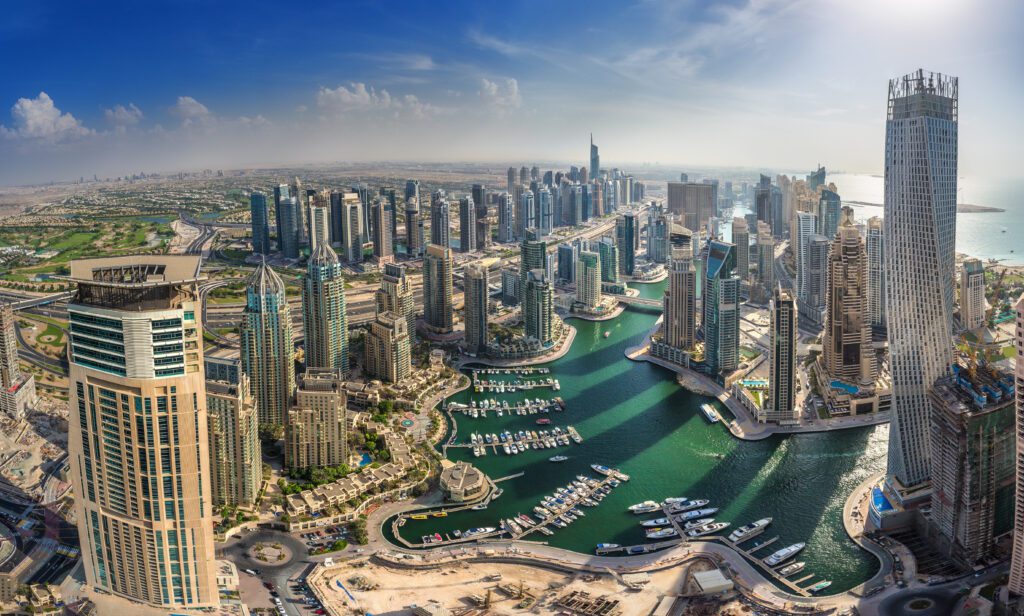Dubai is undergoing a rapid and transformative ecommerce boom, according to the E-Commerce Report in the MENA Region 2024, published by EZDubai and supported by the Dubai Department of Economy and Tourism.
It projects the emirate’s ecommerce market to grow from AED 32.3 billion (USD $8.8 billion) in 2024 to AED 50.6 billion (USD $13.8 billion) by 2029.
This growth is fueled by a strategic blend of government leadership, innovative infrastructure, and consumer-centric technologies that together position Dubai as the region’s ecommerce hub. Driving this expansion is the Dubai Department of Economy and Tourism, which, through its flagship platform Business Dubai, has worked to simplify processes, attract investment, and foster entrepreneurship in the digital economy.
Business Dubai, DET’s integrated business setup platform, says it has significantly reduced the complexity of starting and scaling online ventures. By aligning licensing, regulatory support, and public-private partnerships, the initiative empowers both startups and multinational e-tailers.
Launched in 2019, EZDubai is the region’s first purpose-built ecommerce zone, located in Dubai South. Spanning more than 920,000 square meters and positioned between Al Maktoum International Airport and Jebel Ali Port, EZDubai provides strategic logistics access to enable same-day and next-day delivery across the GCC and beyond. GCC refers to the Gulf Cooperation Council, a regional union that includes Saudi Arabia, Kuwait, Qatar, the United Arab Emirates, Oman and Bahrain.
Dubai’s growing ecommerce market
Dubai’s ecommerce market is driven by mobile commerce, with over 75% of all purchases completed on smartphones. Consumers commonly use platforms such as WhatsApp Business, Instagram Shopping, and mobile-optimized websites.
The fintech sector is also playing a crucial role in shaping consumer behavior. Digital wallets now account for 53% of online transactions, up from 41% in 2020. Meanwhile, buy now, pay later (BNPL) services like Tabby and Tamara have become widely adopted, especially among Gen Z and Millennial consumers.
“The UAE’s digital maturity has enabled fintech adoption at scale,” said Sanjika Nakandala, research manager at Euromonitor International. “This is not just about convenience—it’s about building financial ecosystems that align with evolving consumer expectations.”
Companies such as Amazon, Noon, and DHL Express use EZDubai as a regional fulfillment base, capitalizing on its integrated logistics corridor.
With 70% of UAE residents shopping online at least once a month, expectations around speed, service, and personalization are increasing. Consumers now demand free same-day delivery, easy returns, real-time tracking, and tailored shopping experiences.
Dubai is also playing a leading role in shaping the broader regional ecommerce landscape. The report projects the MENA market to grow from AED 126.7 billion in 2024 to AED 212.2 billionby 2029. That would be growth from USD $34.5 billion in 2024 to $57.8 billion in 2029. Dubai’s advanced digital infrastructure, regulatory model, and investment momentum are being exported to neighboring economies such as Saudi Arabia and Egypt.
Sign up
Sign up for a complimentary subscription to Digital Commerce 360 B2B News. It covers technology and business trends in the growing B2B ecommerce industry. Contact Mark Brohan, senior vice president of B2B and Market Research, at mark@digitalcommerce360.com. Follow him on Twitter @markbrohan. Follow us on LinkedIn, X (formerly Twitter), Facebook and YouTube.
Favorite